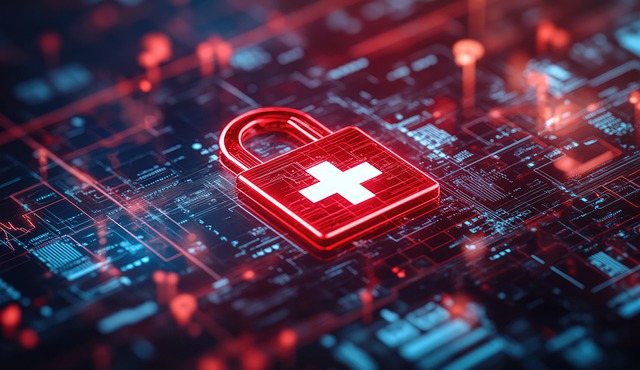Missed patient calls impact care delivery and outcomes in healthcare. Callback automation technology is a game-changer, ensuring prompt responses, enhancing satisfaction, and improving appointment booking efficiency. This method minimizes missed appointments and optimizes operational performance. In the digital age, callback automation streamlines medical practice management, reclaiming lost leads, improving communication, and freeing up staff time. Integration offers advantages in unanswered call resolution and lost call appointment recovery, increasing accessibility and booking rates despite initial costs. Automated callbacks improve patient engagement, lead conversion rates, and core patient care while enabling continuous improvement through performance monitoring.
In the dynamic landscape of healthcare, missed patient calls can significantly impact appointment bookings and overall service delivery. This article delves into the critical need for effective call recovery strategies, exploring both manual processes and the emerging role of callback automation in medicine. We examine how automated systems streamline scheduling, enhance patient engagement, and improve operational efficiency while addressing potential benefits and challenges of technology integration.
- Understanding the Impact of Missed Calls
- Manual Call Recovery Processes in Healthcare
- The Rise of Callback Automation in Medicine
- Implementing Automated Systems for Appointment Booking
- Benefits and Challenges of Technology Integration
- Strategies to Optimize and Monitor Call Handling
Understanding the Impact of Missed Calls

In the healthcare sector, missed patient calls can have significant implications. Every unanswered ring represents a potential lost opportunity for medical providers to connect with patients, offer timely care, and schedule crucial appointments. These missed calls contribute to inefficiencies in patient communication, which can delay treatment plans and impact overall healthcare outcomes. Recognizing the impact of such oversights is vital; they not only disrupt the patient experience but also pose challenges for healthcare organizations to effectively manage their patient rosters.
Implementing a robust medical callback automation system can address these issues. Callback automation technology streamlines the process by promptly addressing missed calls, ensuring no message goes unheard. This strategy improves patient engagement and satisfaction, as well as enhances appointment booking efficiency. By integrating automated solutions into existing medical practices, healthcare providers can establish an effective call recovery system known as a medical callback protocol, thereby minimizing lost call appointments and improving overall operational effectiveness through quick unanswered call resolution.
Manual Call Recovery Processes in Healthcare

In healthcare settings, manual call recovery processes are often a necessary step to ensure patient care and engagement. When a patient fails to show up for an appointment or their call goes unanswered, manual interventions come into play. This typically involves dedicated staff members reaching out to patients via phone calls, emails, or text messages to reschedule or confirm appointments. The process requires careful documentation and tracking of communication attempts, ensuring compliance with medical records and privacy regulations.
Effective manual call recovery strategies involve personalized approaches, considering patient preferences and accessibility. Healthcare providers may offer flexible rescheduling options, cater to language barriers, or provide transportation assistance to encourage appointment attendance. This human-centric approach not only improves patient satisfaction but also reduces no-show rates, optimizing the efficiency of medical resources. Additionally, training staff in effective communication techniques can enhance the overall success of these recovery processes, including reclaiming missed leads and resolving unanswered call issues, ultimately improving the patient experience.
The Rise of Callback Automation in Medicine

In the digital age, healthcare providers are increasingly recognizing the value of callback automation as a strategic tool for enhancing patient engagement and optimizing appointment scheduling. This innovative approach, often referred to as unanswered call resolution, has become an indispensable part of efficient medical practice management. By implementing medical callback protocols, automated systems can promptly address the issue of missed calls, ensuring no potential patient connection goes unanswered.
The traditional method of manual call back management can be time-consuming and may lead to delays in appointment bookings. However, with callback automation, healthcare organizations can streamline their processes, improve communication, and ultimately increase patient satisfaction. This technology enables automated follow-up calls, allowing practices to recover lost call appointments effectively while freeing up staff time for other critical tasks, contributing to a more organized and responsive medical practice.
Implementing Automated Systems for Appointment Booking

Implementing Automated Systems for Appointment Booking can significantly transform medical practices by streamlining processes and enhancing patient engagement. Callback automation technologies are designed to efficiently reclaim missed leads, ensuring no potential patient is left unattended. These systems seamlessly integrate with existing practice management software, automatically dialing and connecting with patients who have left unanswered calls or messages. By leveraging call follow-up automation, healthcare providers can quickly resolve issues related to unreturned calls, improving response rates and patient satisfaction.
This approach not only optimizes appointment bookings but also contributes to better resource allocation. Automated systems can be programmed to send personalized reminders, offer alternative time slots, and even collect preliminary patient information, thereby reducing administrative burdens on staff. In today’s digital era, where patients increasingly prefer convenient communication channels, implementing such technologies ensures medical practices stay competitive and effective in managing appointment schedules.
Benefits and Challenges of Technology Integration

The integration of technology into healthcare systems offers a multitude of benefits, particularly when it comes to callback automation medical. Automated systems can significantly enhance patient care by efficiently managing unanswered call resolution and lost call appointment recovery. Through sophisticated algorithms, these technologies identify missed calls, instantly generate callbacks, and schedule appointments, ensuring no potential patients are left unheard. This not only improves accessibility but also increases booking rates, a crucial aspect for medical practices to thrive.
However, implementing such solutions is not without challenges. Healthcare professionals must ensure patient data security and privacy, adhering to strict regulations. Additionally, while automation streamlines processes, it may require initial setup costs and ongoing maintenance, which could pose financial considerations. Balancing the benefits of improved medical callback protocol with these practical aspects is essential for successful technology integration in healthcare.
Strategies to Optimize and Monitor Call Handling

Optimizing call handling is a strategic move to enhance patient engagement and boost appointment bookings. One effective approach is implementing callback automation for medical practices. This technology ensures that patients who leave messages or are unavailable during their initial attempt to schedule an appointment receive automated callbacks, increasing the chances of reclaiming missed leads. By automating this process, healthcare providers can save time and focus on other aspects of patient care.
To further streamline operations, monitoring systems should be in place to track call performance. This involves analyzing callback rates, average handle times, and customer satisfaction scores. Such data enables practices to identify areas for improvement, refine their strategies, and ultimately, enhance the overall appointment booking process. Reclaiming missed opportunities through efficient call follow-up automation is a game-changer in ensuring patients receive timely care and fostering a robust patient base.
